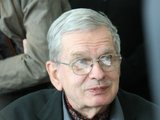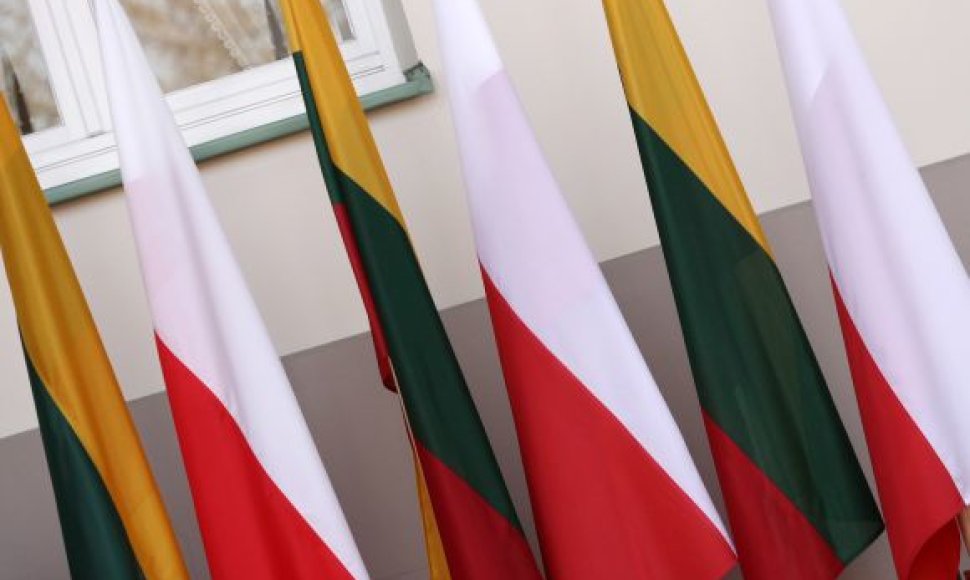Professor Alvydas Jokubaitis once called Lithuanian-Polish relations “surreal.” On the one hand, the public arena is resounding with talks of neighbourly quarrels and growing hostility; on the other hand, however, day-to-day bilateral cooperation is bearing rather good fruit.
Grand projects
Granted, political battles often outshine achievements. The latter might be pushed into the margins of the media or drown in information noise. Figures, however, indicate that the Lithuanian-Polish dialogue is maintained quite effectively and to the benefit of both nations.
As an instance, the turnover of trade between Lithuania and Poland grew 50 percent last year to achieve all-time heights of 12 billion litas (3.5 billion euros). Therefore speculations that souring relations might undermine big energy projects seem quite unfounded.
30-31 May this year, in the Council of Baltic Sea States summit in Stralsund (Germany), Polish Prime Minister Donald Tusk stressed the particular importance of regional energy projects and the good example that the Baltic states showed while dealing with the financial crisis.
The project aiming to connect both countries' electric grids is in full speed. Arvydas Sekmokas, Lithuanian Energy Minister, said after returning from a meeting in Poland that Poles are very enthusiastic and already plan building a second LitPol Link line in 2020.
Moreover, works are moving forward on putting together a plan to connect Lithuanian and Polish gas pipelines. Five years ago, such a prospect still looked unbelievably distant, while now, a business environment analysis has been completed and technical study is in progress.
Poland is the biggest investor in Lithuania. Every year sees an increase in Polish tourists flows, while cultural cooperation is evidenced by numerous events held in both countries.
Turning away from the East
True, there are problems between Lithuania and Poland. Bilateral relations, that had been increasingly good ever since the collapse of the socialist bloc, took a sinister turn in 2007, after general elections in Poland brought a change in government. Leadership of the country was taken over by delegates of the Civic Platform and Poland's foreign policy changed the course somewhat.
Poland then started to increasingly assertively position itself as one of the major powers of Europe and strengthen ties with the continent's powerful – Germany and France. Economically fit Poland turned away from the East and set out to establish itself among the big six of the EU. As a result, Poland's attention to its traditional and strategic allies in Central and Eastern Europe naturally weakened.
Lithuania was soon to feel the consequences of President Lech Kaczynski tragic death in a plane crash in April 2010. Many of Lithuania's friends were on that plane – politicians, MPs, military officers, society figures. Passing of people like Czeslaw Milosz, Jerzy Giedroyc, Marek Karp, too, has made an impact.
However, despite occasional miscommunication in bilateral dialogue, Lithuanian representatives in EU institutions unequivocally claim there has never been any problem in cooperation with Poles.
Moreover, they say it would be hard to find more faithful partners and supporters of Lithuania's position in Brussels. Poles and Lithuanians easily find common ground when it comes to defending their countries' interests – be it regarding EU budget, energy projects in the Baltic Sea region, etc.
Educational environment better than anywhere else
The biggest novelty on the agenda of Lithuanian-Polish bilateral relations is undoubtedly the amended Law of Education that the Lithuanian Parliament voted into effect in March 2011. The new provisions were criticized by both Polish-speaking Lithuanian citizens and Warsaw.
Poland fears that the new law might restrict opportunities for Polish-speakers to receive education in their native tongue which, in turn, might eventually end in forced assimilation and Lithuanization of the Polish national minority. Warsaw claims the network of Polish schools in Lithuania is being threatened.
According to data available to the Ministry of Education and Science, there are 170 Polish-language schools in the world (outside Poland). 80 of them are based in Lithuania. “Lithuania is the only country in Europe where you can receive education in Polish from kindergarten to university. Polish-language textbooks are available for forms 1 to 12,” President Dalia Grybauskaitė noted recently.
What the new Education Law in fact provides for is that non-Lithuanian schools in the country must teach several subjects in Lithuanian: Lithuania's History, Lithuania's Geography, Lithuanian, and Civic Education.
Even after the amendment, the Polish-to-Lithuanian instruction ratio remains well above the EU average. 19 percent of classes will be given in Lithuanian and the remaining 81 percent in Polish, whereas EU regulations envisage a 40-percent minimum of instruction in minority languages.
In addition to that, Polish schools are to be given an 8-year transitional period before pupils are expected to take the same national Lithuanian exam as native speakers.
Partners in peace missions
Brussels-based officers often say that quarrels related to national minority issues have nothing to do with day-to-day work of diplomats on bilateral tasks of the two countries.
One of them is defence. Lithuania and Poland cooperate in this area using joint institutions and international as well as regional organizations.
In 1999, Lithuania and Poland established a joint Litpolbat battalion. The unit took part in NATO's peace mission “Joint Guardian” in Kosovo, as part of Poland's KFOR force. Moreover, Lithuania and Poland joined forces in the peacekeeping mission in Iraq.
The two countries have agreed to set up an integrated airspace control system. Polish pilots are currently guarding the Baltic airspace as part of NATO's policing mission.
Formula for friendship
Professor Tomas Venclova, who gave a lecture in Warsaw University, has outlined a detailed formula to make sure Lithuanian-Polish frictions disappear.
 |
| BFL nuotr./Tomas Venclova |
Lithuania's Poles, he notes, must accept that the Vilnius question is settled once and for all – which is to the benefit of both the city and the country as well as people living there.
“They are not ruled by a foreign and hostile power. They are at home as descendants of the old Lithuanians to whom Lithuania was the most important thing. They, too, are responsible for the country's fate and should not stick to old hostilities and grievances. Poland should regard them as legitimate citizens of a foreign state and its liaison to that state – not its own nationals who have been separated from their homeland by historic misfortune. This, too, requires to reconsider and discard many a myth, old fruitless ways of thinking – starting with the ingrained notion that “Vilnius has been Polish from everlasting” and that the Vilnius region does not belong to Lithuanians. It does and it should – but that is exactly why Lithuanians bear a great responsibility and duty to stick to democratic norms and procedures,” professor Venclova says.
Likewise, he says, Lithuanians must realize that assimilation of Poles is not a necessary condition for the prosperity of Lithuania. “They must accept a new definition of nationhood – a community of citizens where origin and language does not play the key role, let alone the sole role. This is no simple task, as it requires to reflect anew on the entire history of Lithuania and discard the national mythology that was formed by generations and therefore operates almost automatically. But if we think it is impossible – or, even worse, that this mythology is a sacred thing – we will become anachronistic backwaters. That is exactly what would spell doom to the nation,” he says.
According to Venclova, both parties should refrain from chauvinistic games and manipulations with groups of less educated voters. “I do realize that it might be a difficult task for politicians, but one should think beyond short-term gains, about state interests,” he says.
The article originally appeared in a 15min supllement "My World" which is a joint project of 15min and the Lithuanian Ministry of Foreign Affairs.













